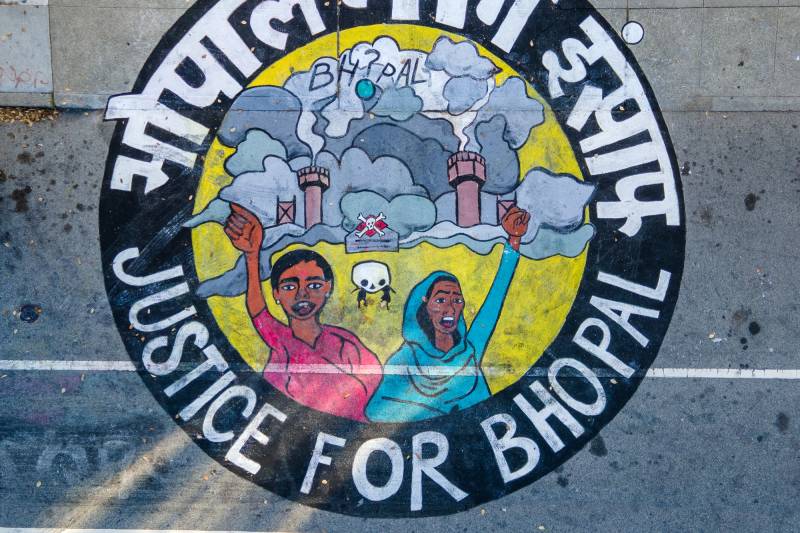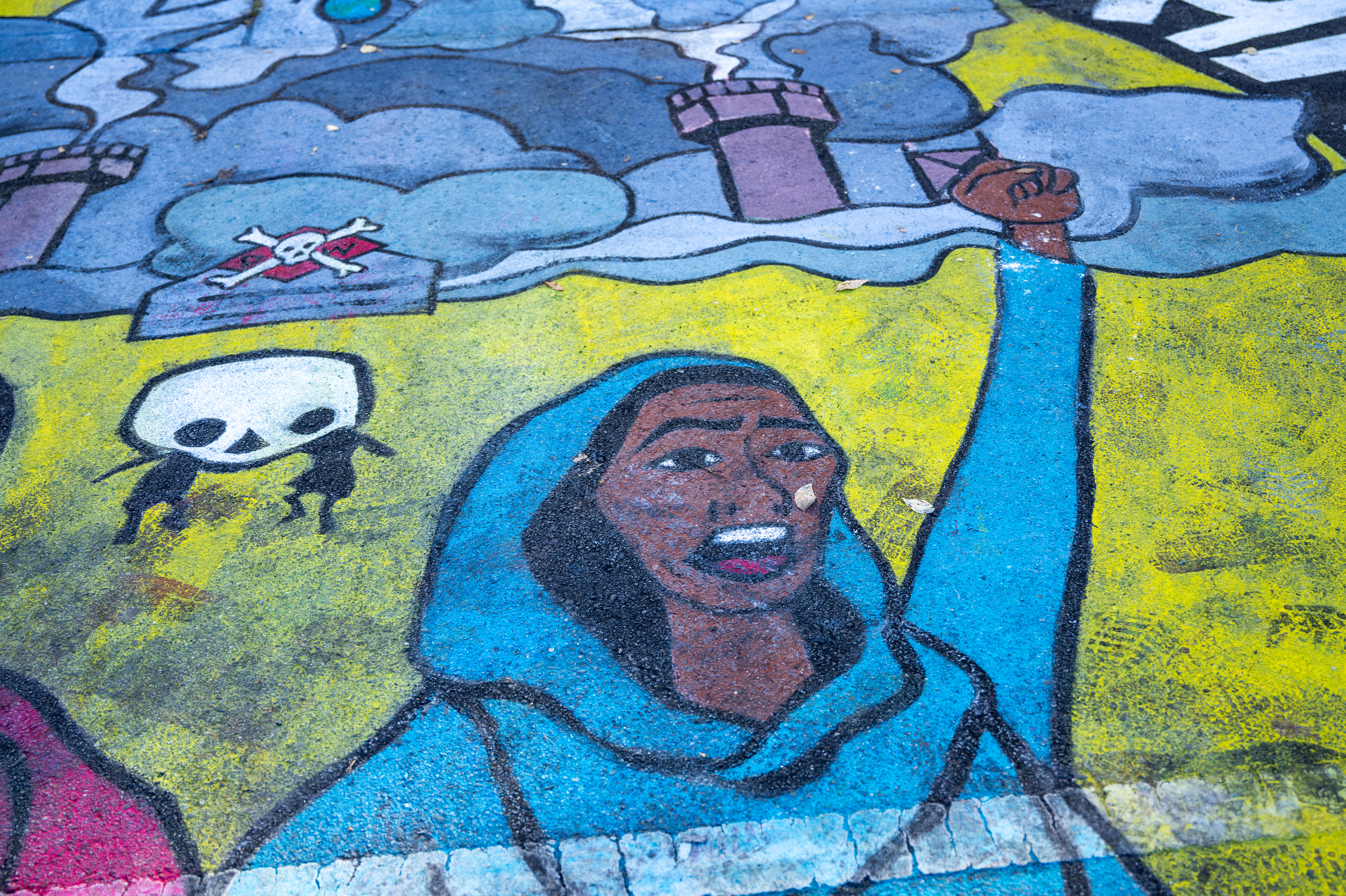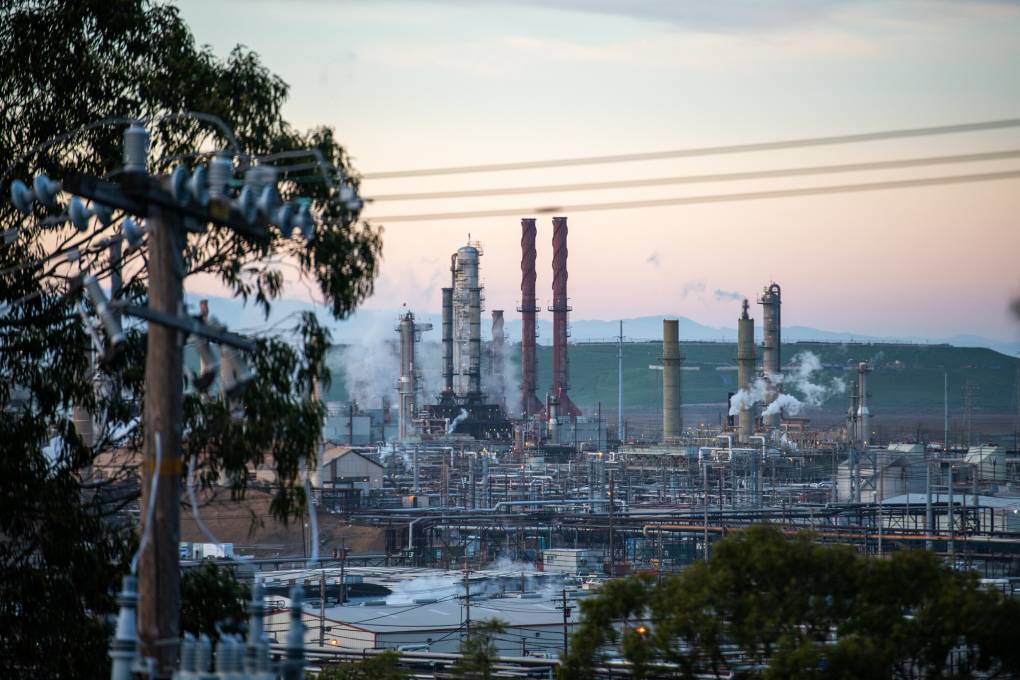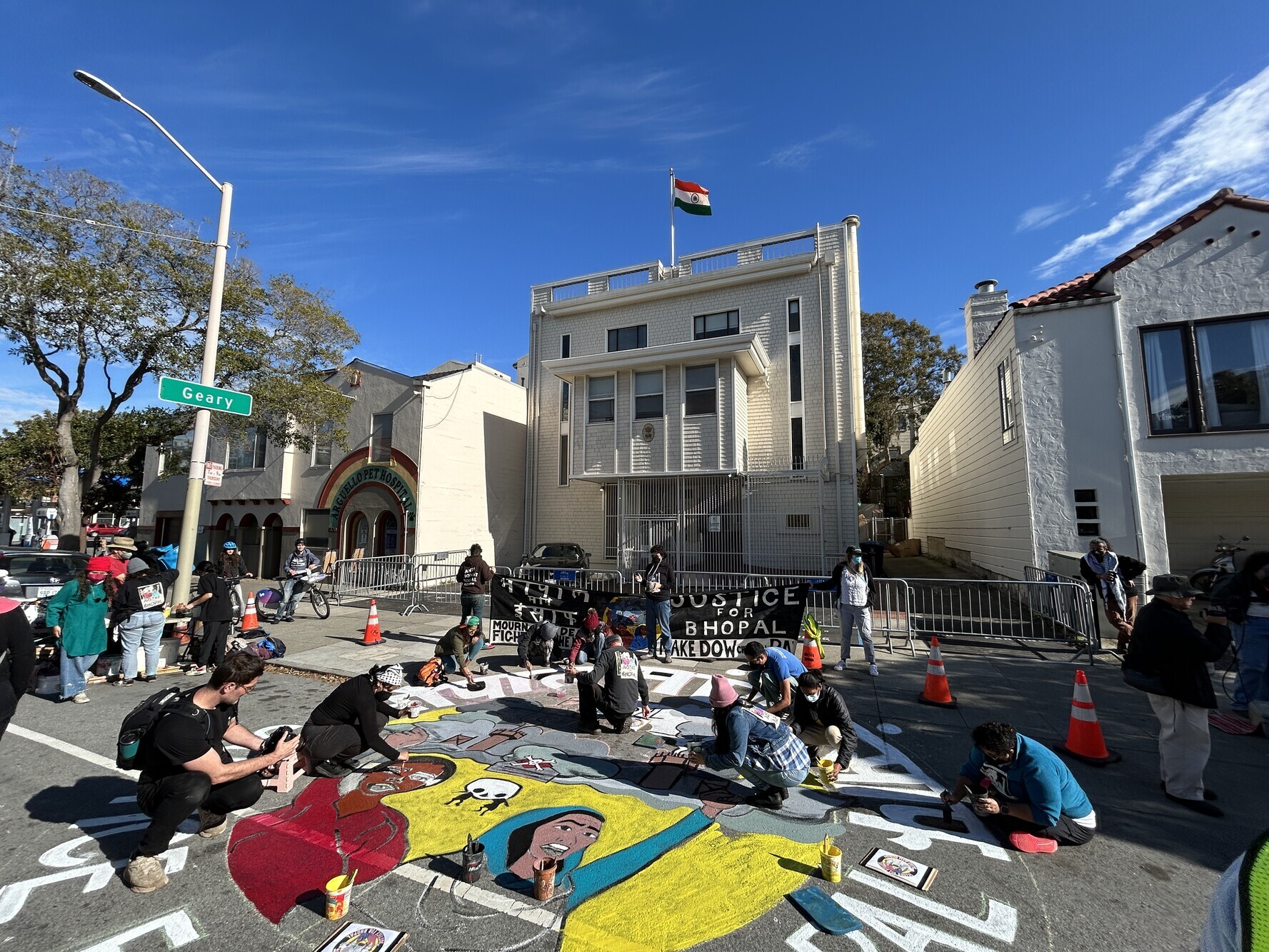Four decades since the world’s worst industrial disaster killed thousands of people in the city of Bhopal, India, a group of Bay Area artists and community organizers are still pushing for justice.
The Bhopal disaster struck on Dec. 3, 1984, when over 40 tons of gas leaked from a pesticide plant, immediately killing at least 3,800 people. Half a million people were exposed, and at least 25,000 have died in the years since. Thousands more still suffer from disorders caused by the ongoing contamination — resulting in kidney and liver disorders, cancers, respiratory diseases and gynecological issues.
On Sunday, about 30 people gathered outside the Indian Consulate in San Francisco to paint a mural on the street commemorating the 40th anniversary of the disaster and calling attention to the decadeslong campaign to hold the U.S.-based factory owner accountable.
“There’s a big skull and crossbones over the Dow Chemical logo,” said Oakland artist Alizarin Menninga-Fong, who spent nine months after high school living in Bhopal and working with the International Campaign for Justice in Bhopal in 2009. “I hope that’s how everybody sees that logo whenever they encounter it out in the world.”



